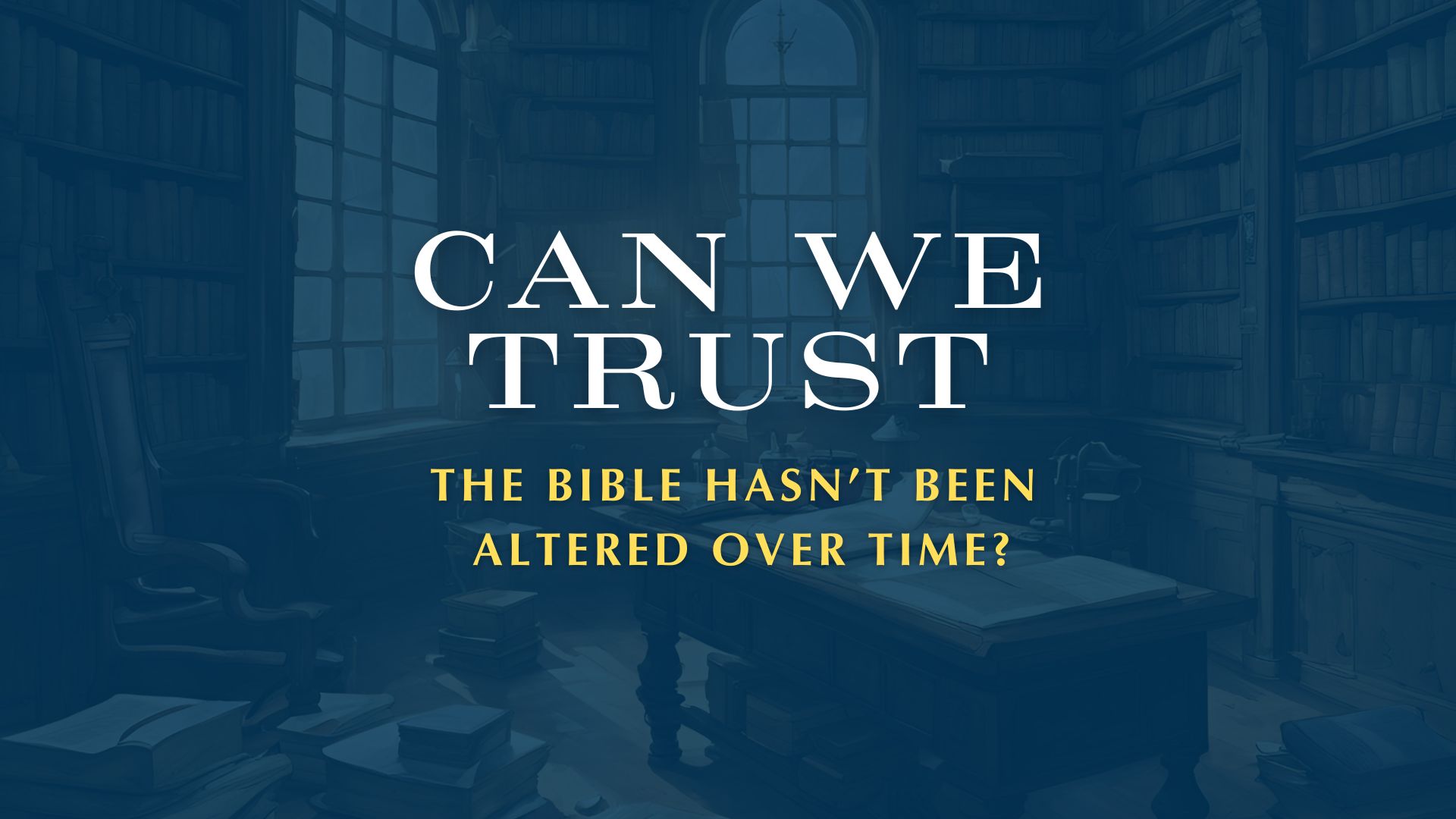You know what tends to happen with things that are repeated over and over again? People start to accept them…not because the sayings are true, but because they’ve heard them said so much.
Here are a couple of examples:
- “Money is the root of all evil.”
- “Pride comes before a fall.”
However, in both cases, the verses are misquoted.
- 1 Timothy 6:10 says, “For the love of money is a root of all kinds of evil.” It’s not money itself that’s evil. It’s one’s desire for it – the love of it – that is a root of all kinds of evil.
- And Proverbs 16:18 is really a lot more graphic: Pride goes before destruction, a haughty spirit before a fall. Pride is deadly serious, even more than we want to think.
But you hear things like these said so many times that you assume they’re accurate quotes.
Others include:
- “Let them eat cake.”
- “Beam me up, Scotty!”
- “Luke, I am your father.”
Coulda sworn Vader said that…
Have you heard people say things like, “The Bible has been changed and edited over the years, there’s no way to know what it originally said, so you can’t trust it”?
It’s an accusation I’ve heard thrown around a good bit of late. An opt-repeated line of attack on social media.
And when you hear something like this, your natural inclination might be to immediately try and counter it.
But, an important thing to remember is that those who make an assertion must provide evidence for it. The burden of proof is on them, not on you to refute it.
So when you hear someone say “The Bible has been changed so much over time that we can’t trust it,” the burden does not lie with you to disprove that statement. The one who makes it must provide the proof that it’s true.
This is something apologist Greg Koukl points out quite a bit.
Koukl is fond of the approach of asking a series of questions of those you’re debating – that he calls the “Colombo” method, after the TV detective of the 1970s series. One of those questions is “How did you come to that conclusion?”
So the approach might go something like this:
Person 1: “The Bible has been changed so much over time that you can’t trust it.”
Person 2: “How did you reach that conclusion?”
Person 1: “Well, I mean that it’s unlikely we have any idea what the original text said.”
Person 2: “What evidence have you found that leads you to believe that?”
The chances are very good that you’ll hear statements like this a lot more than you’ll hear actual evidence to back it up.
Now, that said, the question of whether we can trust the Bible is a good one to consider. If you’re going to base your life on what it says, and entrust your eternal destiny to its words, it’s wise to look intently and to consider carefully.
Is the Bible reliable, or has it been significantly changed over the years – to the point that we should be skeptical of it?
If you’re a Christian, and you’ve never thought about this, it can be an unsettling question at first. But I would encourage you not to be afraid to look into it. If the Bible is true, as you believe it is, then the evidence will only lead you back to that conclusion.
And if you’re skeptical, it’s also good to ask if the Bible is reliable. If you ultimately find that it is credible to be believed, it can change your life.
And consider this: With the amount of people who do not like what the Bible says, and who would very much like to “disprove it,” do you think if that could be readily done, it would not be instantly known everywhere?
That should be a first clue to the answer to our question.
But, where do you start? There’s an enormous amount written on the subject, by those who believe in the accuracy of Scripture and those who don’t. There are scholars who devote their life’s work to studying this.
There are many ways you can go about this. If you’re scholarly-minded, you might begin to read academic works, or even take classes at a seminary. But if you’re someone who doesn’t have the time (or the patience) to do this, I would begin this way.
Start by reading something on the subject by an author you trust. If they’ve done their homework, they’ll likely offer not only their opinion, but sources they’ve read that you can check out further.
Two of my favorites on this topic are “Another Gospel?” by Alisa Childers and “Cold Case Christianity” by J. Warner Wallace.
Both of these authors have carefully studied the evidence, and especially in Wallace’s case, from a skeptical perspective.
Now, it would be great if we had the original copies of each of the 66 books of the Bible. But we don’t. Before the days of the printing press, documents had to be copied by hand. And there were people whose sole profession was to do just that.
The good news? We have more copies of Scripture from antiquity than other classic works of literature. And it’s not even close.
Plato? Aristotle? Homer? If you trust these were copied and translated correctly, you have much more reason to trust the Bible was done so.
I think we’d also prefer it if all of these manuscripts were identical, but we do find some variations within them. Not surprising, because again, they had to be copied by hand!
You’ll find scholars with widely differing beliefs who study these things. But what most agree on is that the vast majority of these differences are not significant and do not alter the meaning of the text. Think spelling errors or the subject and verb of sentence placed differently.
Wallace puts it this way:
“If we reject the entirety of Scripture simply because it contains artifacts of one kind or another, we had better be ready to reject the ancient writings of Plato, Herodotus, Euripides, Aristotle, and Homer as well. The manuscripts for these texts are far less numerous, and they are far less reliable. If we apply the same standard of perfection that some would demand of the bible to other ancient histories, we’re going to have to reject everything we thought we knew about the ancient past.” [1]
Now, to be consistent, we need to also point out where there are significant differences in the manuscripts.
Probably one of the two biggest “meaningful differences” is the story of the woman caught in adultery from John 7:53 – 8:11.
The NIV has the disclaimer surrounding these verses: “The earliest manuscripts and many other ancient witnesses do not have John 7:53—8:11.”
The other is Mark 16:9-20 (the very end of the book). The ESV includes this note: “Some of the earliest manuscripts do not include 16:9–20.”
However, even if we were to conclude that these passages were not in the original text and were added in later – in neither case does their inclusion alter the meaning of the Gospel or the New Testament.
Side note: Another book I’d recommend on the subject is “Can we trust the Gospels?” by Peter J. Williams.
So back to our original question: “Can we trust the Bible?”
Well, that answer is ultimately up to you. But for me, there is more than enough evidence to believe.
Don’t fall into the trap of having to have absolutely everything in order to be willing to believe. You’ll never have that – whether it’s the Bible or anything else in history that you weren’t present for. You’ll have to take someone’s word for it eventually, or remain skeptical of everything. And that’s no way to live.
Choosing to believe God’s revealed word is ultimately a matter of faith. But it does not have to be without evidence. Jesus provided evidence that He was the Messiah, through the miracles He did, including rising from the dead.
I contend that the Bible is the best explanation of reality. It tells us why we’re here, why the world is the way it is, who God is and what He requires of us.
It gives us everything we need for how to live a godly life in Christ Jesus. It’s worth reading and believing.
[1] Wallace, J. Warner, “Cold Case Christianity,” David C Cook, 2023




